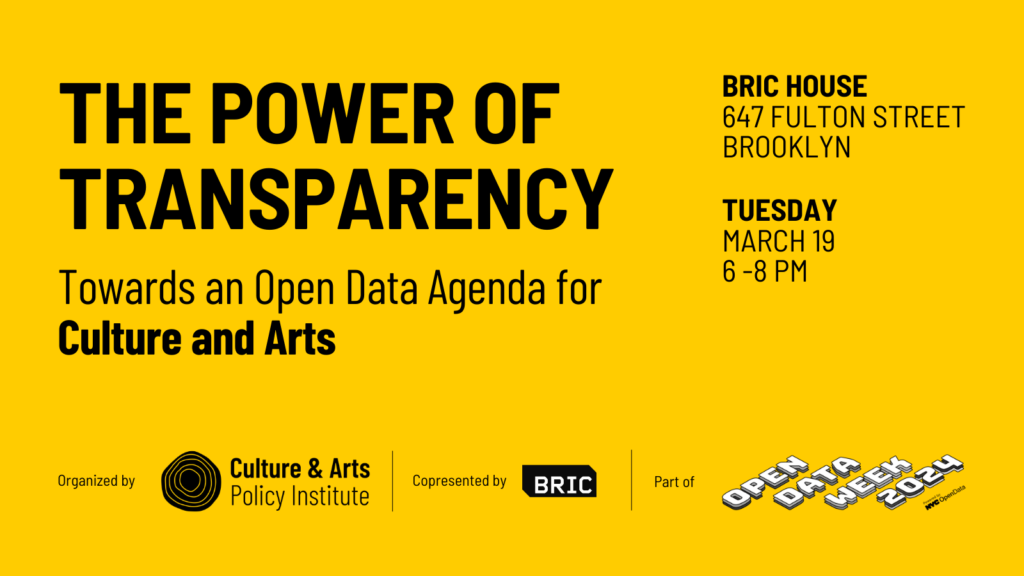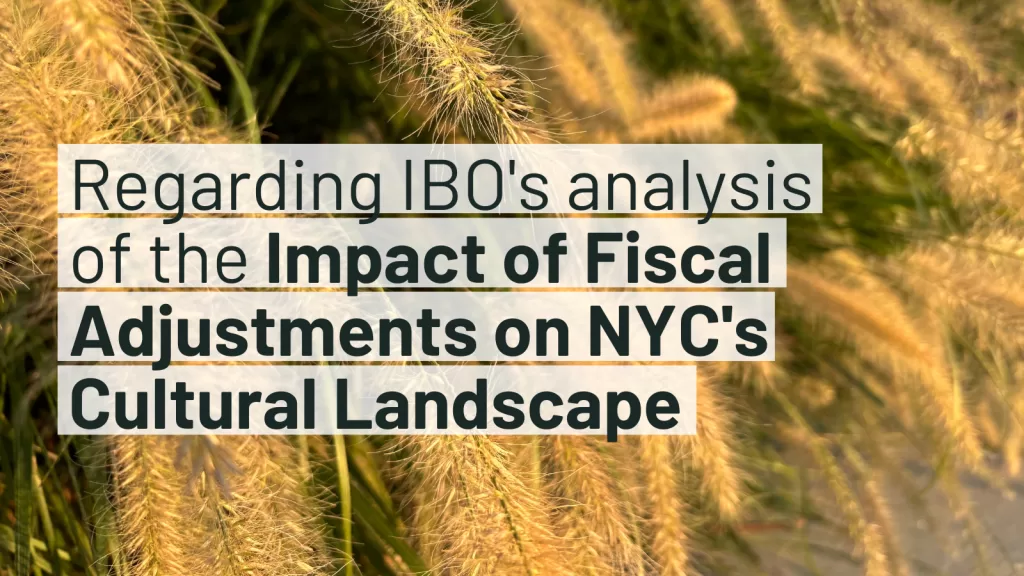On February 5th, 2024, the NYC Department of Cultural Affairs (DCLA) created an emergency rule for its peer-reviewed competitive grantmaking program, the Cultural Development Fund (CDF). The new rule included the existing CDF guidelines and new provisions to allow the Commissioner’s discretion to alter the results of the CDF panel process.
Later in April, DCLA kicked off the process of making the emergency rule permanent, including a public hearing for the Agency’s stakeholders to comment on the rule and propose changes (more details here).
About City Rules
The policies that govern The City of New York are organized into four groups: the New York City Charter, Local Laws, Rules, and Guidelines.
- The Charter is the City’s constitution. This foundational document outlines the city government’s organization, powers, functions, and essential procedures. It’s like a rulebook defining how the NYC government operates and interacts with its citizens. For example, section 387a of the City’s Charter authorizes the heads of the mayoral agencies to supervise the execution and management of all programs and activities of their respective agencies.
- The NYC Local Laws are specific policies passed by the New York City Council and signed by the Mayor. They directly impact how things are done in the city, setting out what’s allowed and forbidden and the penalties for infractions. Legislators write and rewrite the day-to-day script, responding to the city’s evolving narrative. Int 0574-2024 is a Local Law amending the administrative code of New York to expand the information provided on the City’s open space coordination platform.
- The Rules in NYC are specific standards or directives, often issued by city agencies based on the authority granted by local laws or the charter. They detail how laws are implemented and enforced, filling in the gaps between broad legislative strokes and the city’s fine lines of everyday life. Section 2-07 of the proposed rules would also establish the Department’s role in determining the minimum score threshold and the criteria the Department will use for any adjustments to such awards.
The City Charter, Local Laws, and City Rules are all legally binding, while guidelines are less about commands and more about recommendations. They advise on best practices, typically issued by agencies, to help ensure compliance with laws and rules.
Until the creation of the emergency rules created by DCLA in February this year, the only rule listed in Title 58 of the City’s Rule, the section about DCLA, was a rule codifying the certification process for artists looking to benefit from Joint Living-Work Quarters for Artists (JLWQA) in Soho.
The Opportunity
Making an emergency rule permanent allows artists, cultural workers, and all New Yorkers to propose changes to existing or proposed rules. In this case, the rule will inform DCLA’s CDF process. While DCLA’s impetus behind the creation of such a rule is to codify the commissioner’s discretion over the results of a competitive panel-reviewed process, in the upcoming hearing on May 10th, DCLA stakeholders can propose some of the reforms that the sector has worked for the last two years under the leadership of New Yorkers for Culture and Arts (the complete list of proposed reforms is here).
As the creation or amendment of agency rules involves a participatory process, it takes political will and incentive for a commissioner to engage in such a process—in this case, complete discretion to change the results of the panel process. So, those seeking to improve the CDF program should take advantage of this once-in-a-lifetime opportunity.
A few Issues
The rules as proposed present a few issues, such as the need to update or make the definitions consistent with the sector’s standard definitions (accessibility, audience, etc.). There is an uneven level of detail throughout the rule. Some sections are extremely specific (information on the eligibility or panel process, and others are very vague. Some procedures are spelled out, and others are left to be defined by ad-hoc guidelines without mention of oversight mechanisms.
Questions for DCLA
- Is the proposed rule governing DCLA’s Cultural Development Fund the first in a series of rules that will codify other areas of DCLA (Capital, Public Art, CIGs, etc.)?
- The NYC Charter Revision was created to dismantle structural racism in city government and advance a racially equitable future through community-driven policy reforms. Does the Charter Revision inform this rule? In particular, § 2-04 A4 referring to Project Qualifications:
Incorporate a diverse funding stream that includes at least one of the following:
Individual donations, earned income, foundation and corporate support, or other government support.) Or the competitive aspect of the process and the excellence as part of the criterion informing the process.
Overall, it seems fitting for DCLA to extend beyond the agency’s impetus for creating permanent rules for CDF and consider the many recommendations proposed by the sector. At the same time, the City Administrative Procedure Act defines a minimum of opportunities for agencies to engage constituents in the process of rule-making.
However, in the interest of transparency, collaboration, and equity, we recommend that DCLA opens up other engagement opportunities and extends the timeline for this process to accommodate the participation of all stakeholders, in particular, those from small budget organizations that make 65% of organizations benefiting from CDF grants.
You still have time to participate in the Department of Cultural Affairs (DCLA) CAPA Hearing
Date & Time:
May 10, 2024, 11:00 AM Eastern Time (US and Canada)
To testify Click Here.
To join the meeting:
Meeting ID: 817 2706 7201
Passcode: 050624
https://bit.ly/3wpY11l
To submit written testimonies, send an email to: rules@culture.nyc.gov
Subject: City Administrative Procedure Act


